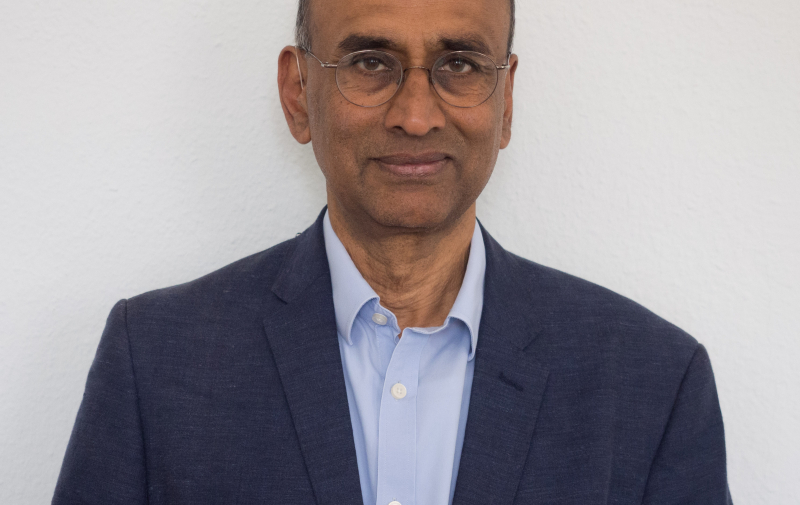Venki Ramakrishnan was born and grew up in India where he obtained a degree in physics. At the age of 19, he left for the United States to pursue a PhD in physics, but his interests soon turned to biology. He spent almost three decades in the USA before moving to England in 1999 to work in the MRC Laboratory of Molecular Biology in Cambridge where he is now a Group Leader. Most of his work has been on central problems in molecular biology, including how genetic information in our DNA is “read” to make the proteins they specify. This process is carried out by the ribosome, an enormous molecular complex of about half a million atoms. He and others determined the precise atomic structure of the ribosome which helped us to understand how it worked. The work also showed how many antibiotics work by blocking bacterial ribosomes, which could help us to design better antibiotics. For this work, he shared the 2009 Nobel Prize in Chemistry. From 2015-2020, Ramakrishnan was president of the Royal Society, one of the oldest scientific organisations in the world. During his term, he developed an interest in broader issues such as science policy and public engagement.
Ramakrishnan is the author of two books. The first, Gene Machine (2018), is a popular memoir about the quest for the structure of the ribosome. It describes what it was like to be an outsider who found himself in the middle of a race for an important problem, and talks about how science is done, with its mixture of insights and persistence as well as blunders and dead ends. It also takes a very frank look at how scientists behave, with their mixture of competition and collaboration, their egos, insecurities, and jealousies, but also their kindness and generosity. His most recent book, Why We Die: The New Science of Aging and the Quest for Immortality (2024) is about the biology of aging and death. It tries to look beyond the incessant hype to take an unvarnished look at current efforts to attack aging and at the culture and social consequences of efforts to extend lifespan.
